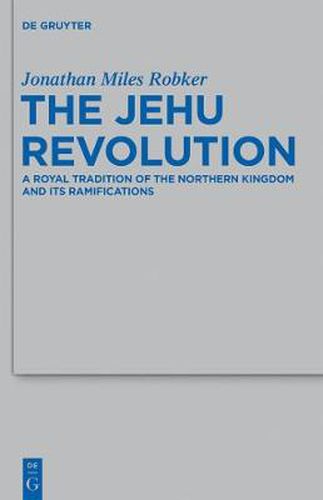Readings Newsletter
Become a Readings Member to make your shopping experience even easier.
Sign in or sign up for free!
You’re not far away from qualifying for FREE standard shipping within Australia
You’ve qualified for FREE standard shipping within Australia
The cart is loading…






This monograph re-evaluates the literary development of 2 Kings 9-10 within the context of the Deuteronomistic History. This undertaking opens with a thorough text and literary critical examination of the pericope, arriving at the conclusion that the narrative of 2 Kings 9-10 represents neither an insertion into the Deuteronomistic corpus, nor an independent literary tradition. Rather, when considering the Greek textual traditions of the biblical narrative (most especially B and Ant.), one can appreciate the narrative of Jehu’s revolution within the literary context of an extensive politically motivated narrative about the Israelite monarchy covering the period from the reigns of Jeroboam I to Jeroboam II. The identification of this pro-Jehuide source within the book of Kings enables a reliable dating into the 8th century BCE for much of the material in Kings focusing on the Northern Kingdom. Comparing this biblical narrative to other (mostly Mesopotamian and Syrian) texts relevant to Israelite history of the period advances the discourse about the veracity of the biblical narrative when contrasted with extrabiblical traditions and permits the plausible reconstruction of Israelite history spanning the 8th and 9th centuries BCE.
$9.00 standard shipping within Australia
FREE standard shipping within Australia for orders over $100.00
Express & International shipping calculated at checkout
This monograph re-evaluates the literary development of 2 Kings 9-10 within the context of the Deuteronomistic History. This undertaking opens with a thorough text and literary critical examination of the pericope, arriving at the conclusion that the narrative of 2 Kings 9-10 represents neither an insertion into the Deuteronomistic corpus, nor an independent literary tradition. Rather, when considering the Greek textual traditions of the biblical narrative (most especially B and Ant.), one can appreciate the narrative of Jehu’s revolution within the literary context of an extensive politically motivated narrative about the Israelite monarchy covering the period from the reigns of Jeroboam I to Jeroboam II. The identification of this pro-Jehuide source within the book of Kings enables a reliable dating into the 8th century BCE for much of the material in Kings focusing on the Northern Kingdom. Comparing this biblical narrative to other (mostly Mesopotamian and Syrian) texts relevant to Israelite history of the period advances the discourse about the veracity of the biblical narrative when contrasted with extrabiblical traditions and permits the plausible reconstruction of Israelite history spanning the 8th and 9th centuries BCE.